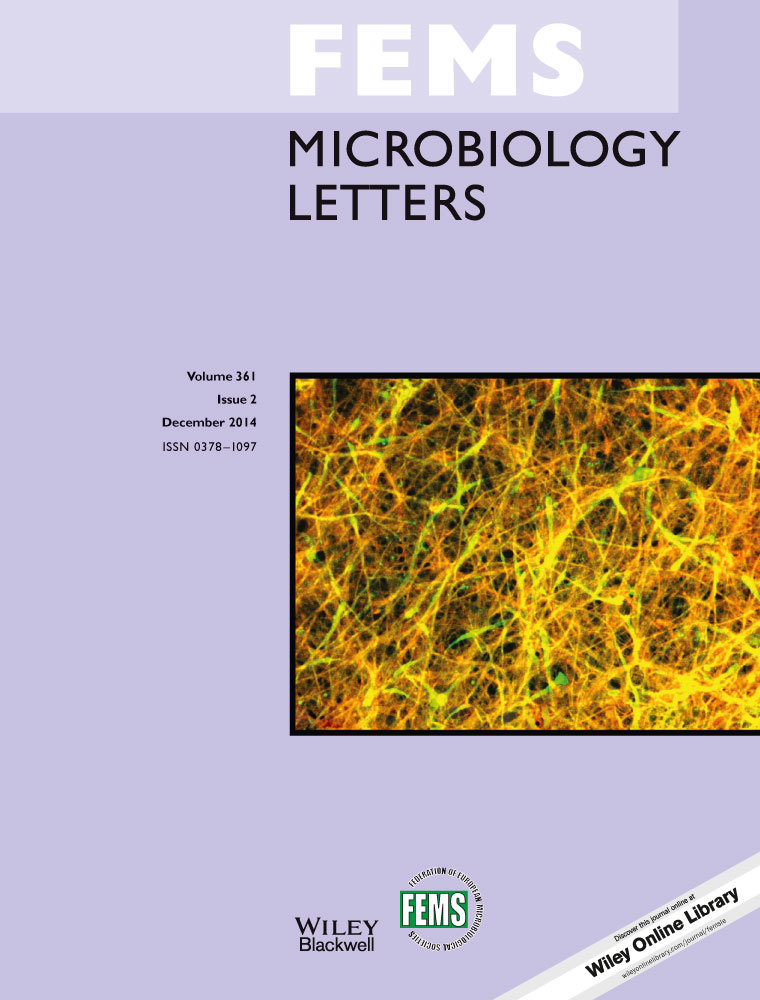Transcriptional analysis of different stress response genes in Escherichia coli strains subjected to sodium chloride and lactic acid stress
Abstract
Survival of Escherichia coli in food depends on its ability to adapt against encountered stress typically involving induction of stress response genes. In this study, the transcriptional induction of selected acid (cadA, speF) and salt (kdpA, proP, proW, otsA, betA) stress response genes was investigated among five E. coli strains, including three Shiga toxin-producing strains, exposed to sodium chloride or lactic acid stress. Transcriptional induction upon lactic acid stress exposure was similar in all but one E. coli strain, which lacked the lysine decarboxylase gene cadA. In response to sodium chloride stress exposure, proW and otsA were similarly induced, while significant differences were observed between the E. coli strains in induction of kdpA, proP and betA. The kdpA and betA genes were significantly induced in four and three strains, respectively, whereas one strain did not induce these genes. The proP gene was only induced in two E. coli strains. Interestingly, transcriptional induction differences in response to sodium chloride stress exposure were associated with survival phenotypes observed for the E. coli strains in cheese as the E. coli strain lacking significant induction in three salt stress response genes investigated also survived poorly compared to the other E. coli strains in cheese.




